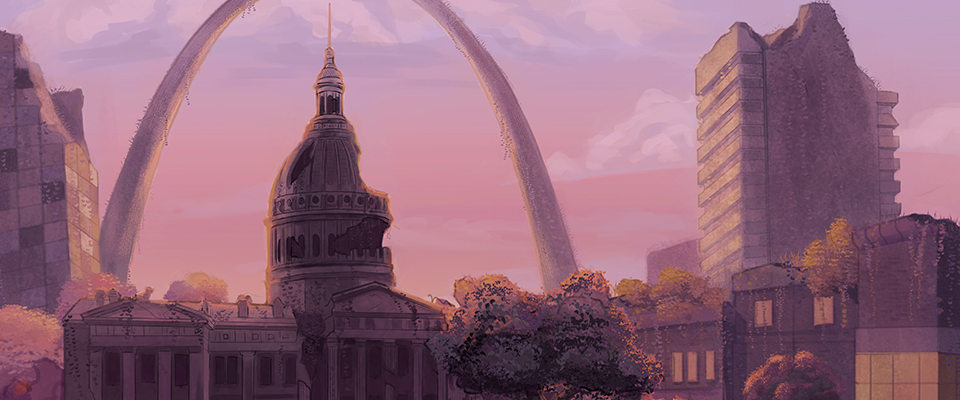
Backroads: An American-gothic Horror TTRPG
A downloadable game

Core Book | OSR | Crunchy | Post-apocalyptic | 4-5 Players
Welcome to St. Louis, the City of the Arch. Beyond Backwater and the border of the American Lands lies the City of the Arch, a diamond in the rough and a trove of Old World artifacts for those who wish to strike it rich, uncover lost technology, or shed light on this nation’s catastrophic history. Drawing curious researchers, skilled prospectors, and desperate scavengers from across the continent, the ruins of the old city are a vast urban jungle, crawling with danger but promising a fabulous wealth of knowledge, technology, and antiquities—for those who survive. Are you willing to risk it all, scavver?
Backroads: City of the Arch is a standalone ttrpg set in the same universe as the Backwater: Southern Gothic Horror tabletop roleplaying game. It describes the Outskirts of a post-apocalyptic America, which spans from Arkansas to the Great Lakes including the ruins of an abandoned St. Louis. This book is 275 pages and focuses on exploration. It includes new setting information, hexcrawl rules, and an adventure module, as well as new gear, animal companions, and monsters. It also includes new character options, including archetypes, origins & ideals, traits, and ability modules.
Plus: you don't need the original rulebook to play. Backroads includes all character creation instructions and the full game system. Backroads also has a character sheet on Roll20, making it easier for you to play with your friends online. Create a new game on Roll20 and select the "Backbone" character sheet. For a tutorial on adding the sheet to a Roll20 game and an overview of the sheet see: Roll20 Character Sheet for the Backbone Game System.
American Gothic Themes
Backroads broadens Backwater’s Southern gothic themes to incorporate elements of American gothic, including the irrational, puritanism, and fear of North America's unknown and expansive natural landscape.
In the northern Outskirts of a post-apocalyptic America, nature has reclaimed the land. It swallows whole the ancient cities devastated by the End. The hierarchy of human and beast has shifted, and greater, more monstrous forms of animals roam the swamps and forests. The wilderness is vast and dangerous. It engulfs and isolates the small, hardscrabble towns of the Outskirts. Those who brave the crumbling roadways of this inhospitable land are often driven by knowledge, searching for clues to what brought about The End of the Old World. Others hope to rediscover lost connections, locating new communities, towns, and resources. Perhaps the majority of these travelers are driven by a love or need for coin. It is these enterprising or desperate sorts who seek to uncover ruins like the City of the Arch, preserved well enough to harbor antique and profitable technologies.
The knowledge and technology hidden in these ruins hold great potential, and so Meecham—an expedition settlement on the banks of the Mississippi—was established. Yet, a growing number of people within and beyond the nation’s borders irrationally reject the Old World’s science and technology. In Meecham, the fiercest among them is a rabid and growing anti-technology movement. Led by Ludwig Finchley, these neo-luddites believe that no good can come from the Old World’s tech, and they boldly claim that this technology is what brought about The End. The group has set its sights on disrupting any operation and expedition into the ruins of St. Louis, making wild claims to bolster their actions: everything from the belief that electricity is made from hellfire to theories about its effects on children. At the other extreme are the pilgrims who have come to St. Louis to behold and revere the ruins’ “sacred” technology. Beyond all reason, these “Mechanists” believe that each person is a small part of a larger machine and that they are defined less by where they come from than by what they do—their function. Humans serve these machines and live on even after death, as their bodies decompose and are eventually recomposed as parts of another machine. Some go so far as to believe that one great technological entity controls these machines and their mechanisms, an All-powerful Intelligence. As word has spread about St. Louis and its expeditions, Mechanists grow more convinced that its ruins hold ancient truths about their faith.
Many of these groups follow codes of moral and ethical conduct that other citizens consider uncomfortably rigid, strict, and censorious, but none are worse than the puritanical Sticklers sect of the uncanny Founders Cult. The Founders Cult is a group who worships the constitutional founders and the line of Old World presidents. This religion is popular among powerful politicians, haughty aristocrats, and wealthy merchants, many of whom claim descent from one Founder or another and among whom antique (and almost certainly fake) relics circulate, like Washington's axe or Franklin’s kite. While most Founders are pompous but bearable, Sticklers are especially insufferable due to their strict societal beliefs and condemnation of nearly everything enjoyable. Their goal is to purify the religion, believing the institutions of their “Church” to be corrupt and criticizing it for its simony, wealth, and lack of political involvement. Among the other acts that they condemn are the Founders’ ornate and pyrotechnic-heavy celebration of the Fourth of July, consumption of alcohol, tobacco, and other drugs, and premarital sex. Sticklers who violate these principles are required to wear bright scarlet tunics, sometimes called Redcoats or Benedict Arnolds, as punishment. Unfortunately, an increasing number of City officials have fallen under the sway of these fanatical doomsayers.
Exploration Horror
Something creepily familiar prowls within the puritanical extremists and anti-scientific movements of the American Lands, much less a cult of the elite who worships the country's founders. But in Backroads, horror manifests itself in other ways. It is in the natural world—the creature that stalks you from the shadows, the truth revealed beneath the full moon, the consequences of losing the path, and the very real chance that you won't arrive at your destination. There may be horror in the stranger who offers you aid or the oasis among the waste. Who or what can you trust in a lawless landscape?
There is also horror in what you may find beneath the City's ruins, where it is always dark and where every twist and turn conceals dangerous potential. At times, it seems as though the Old World wanted these ruins to stay hidden, lost to time and safe from prying eyes. A bygone knowledge waits there, as well as technologies beyond your understanding, and there are those who seek to possess it, fueled by desperation and coin. What waits behind the next corner? What secrets will you uncover? Will they have consequences? And what will happen if they fall into the wrong hands?
In Backroads, horror is not in the unknown or unfathomable. True horror is in the questions they compel us to ask and the limitless theories we can supply. And just when we think we are prepared for the truth... horror is in the discovery.
Statement on Racism
Racism is not a theme in this game. The Backwater series seeks a careful balance for its post-apocalyptic U.S. setting: to establish a setting in which everyone can comfortably roleplay without erasing or ignoring centuries of oppression. It also aims to reject racist and problematic depictions of Native Americans in the American gothic genre, especially those connected to white colonizer’s anxieties around the North American landscape. Early authors of American gothic fiction describe the landscape as unoccupied, largely negating the existence, histories, and experiences of various Indigenous peoples. Other fiction depicts the “untamed” natural landscape as a threat in contrast with civilization, and in these works authors commonly depict Native Americans as a mysterious “other,” reduced to merely another threat of the landscape. Within this formula, authors offensively represent them as uncivilized or “savage” in contrast with White European colonizers. Even supposedly sympathetic representations romanticize and exoticize American Indian characters as silent, stoic, and “the last of their kind.” These inaccurate and stereotyped depictions present a monolithic idea of “The Indian,” ignoring the diverse cultures and traditions that vary by region, tribe/band, community, and mixed racial and ethnic ancestries.
To avoid and disrupt these themes, Backroads intends to include characters with various native (primarily Caddo and Choctaw) and mixed-race backgrounds, representing these backgrounds throughout the setting and in multiple contexts, not only in the content related to New Americans from Backwater, whose history and leadership is indebted to Choctaw activists. Although Backroads expands upon the American gothic anxiety around the natural landscape, it consciously rejects the offensive and reductive depictions of Native Americans within this context, instead emphasizing the culture, resources, and assets of Native American characters and communities. Finally, in its setting, Backroads also seeks to identify and describe important landmarks and locations that recall original and ongoing stewardship and habitation of American Lands by Native American peoples. These characters, locations, and the larger lore are written and illustrated by a writer and an artist with similar identities to the characters and culture and reviewed by a sensitivity reader.
Built with Backbone
Backroads uses the same original system that Backwater uses, now called the Backbone Tabletop Roleplaying system. In addition to its unique setting, Backroads includes all of the core rules for the Backbone game system, so you do not have to purchase Backwater separately. You can also find most of the essential rules in the Backwater Quickstart Guide. However, each book has distinct options for character origins, archetypes, ideals, and items, as well as its own unique setting and characters.
The Backbone game system is original. It uses a 20-sided die for everything except damage. It is intended to be intuitive and streamlined. The foundation of this system are four basic attributes that provide both a modifier (which you add to rolls) and a goal score (which others roll against). When you attempt a skill roll against another character, you simply roll against one of their attribute goals, for example:
- When you threaten or deceive a character you roll against its Intuition goal
- When you hide from or sneak by a character you roll against its Vigilance goal
- When you attack a character you roll against its Reflex goal
- When you shove or trip a character you roll against its Build goal
Characters have both Health Points (physical stamina) and Resolve Points (mental fortitude), and they are relatively low to reflect human fragility. Combat scenarios are consequential and can move quickly as a result. One especially unique element of the system is its Health rolls and Resolve rolls. Players must try to roll under their current Health or Resolve with a d20 to avoid suffering a condition, like the Bleeding condition. The more damage or duress that a character receives, the more likely it may suffer the condition. To learn how to play, try our solitaire game. You can also check our actual plays: Backwater Actual Plays.
Character sheets for the Backbone game system are form-fillable PDFs. The Backbone system also has its own GM sheet for note-taking and tracking. Backbone also has a character sheet on Roll20; see "Roll20 Character Sheet for the Backbone Game System."
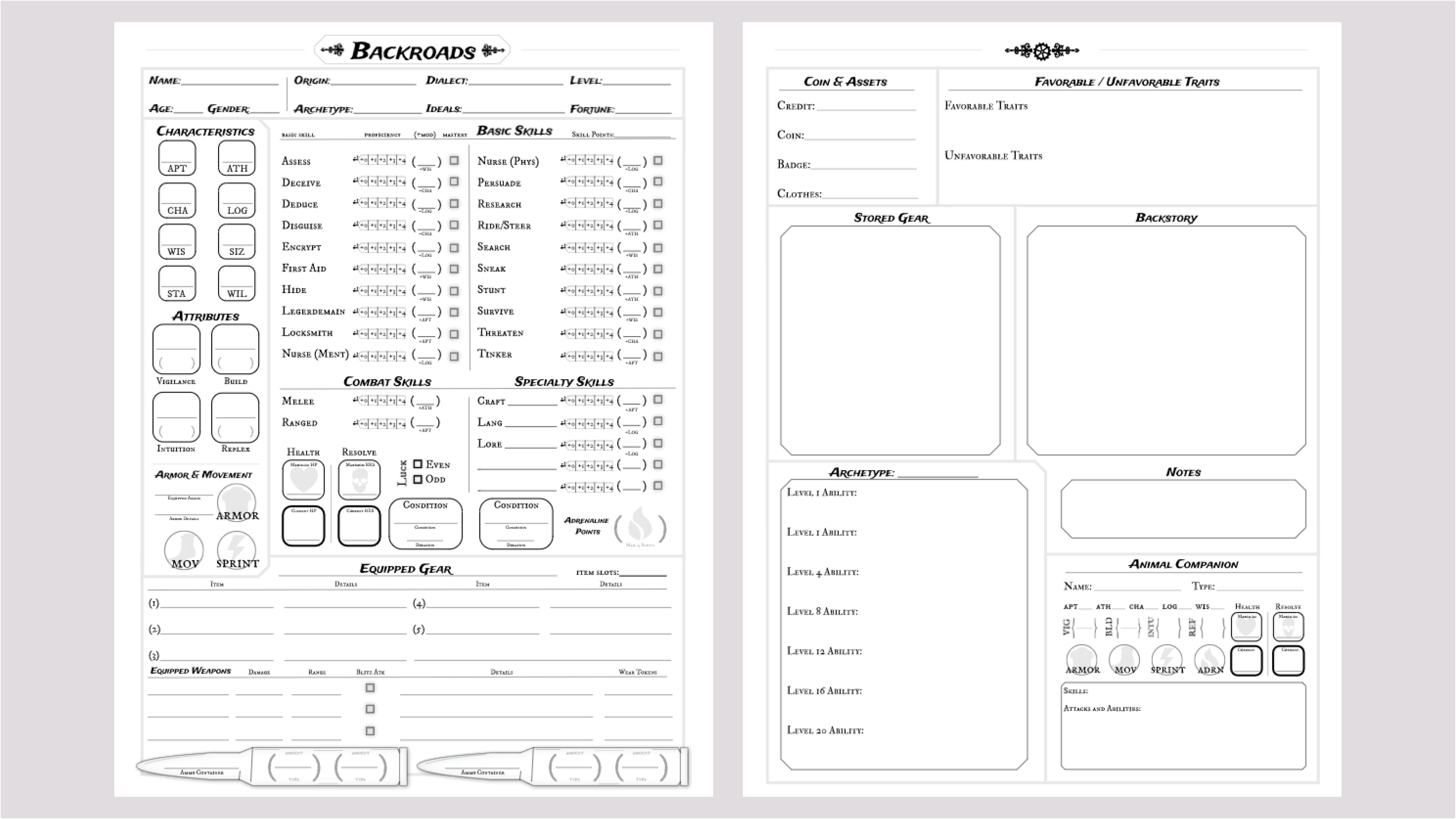
Media
You can find more information about Backroads in the following links:
Contributors

Asa Donald (he/him) & Alex Johnson (he/him) are the creators, developers, and primary writers for the Backwater series. They became friends years ago through a friend's ttrpg group. They remain friends after moving to different wards in the American Lands. Icons by Collin Wilhelm.
Tate Allen (they/them, she/her) is a mixed Indigenous artist and coffee drinker who loves all things nerdy. (Twitter, Artstation)
Carlos Eulefi (he/him) is a concept artist and illustrator from Santiago Chile, painting creatures and fantasy stuff since 2005. (Artstation)
Sonya Henar (she/her) is a mixed race Asian-American artist who specializes in character design and illustration. She’s done comic work, illustrations for the "Tales of BarBEARia" board game, the successfully Kickstarted "2022 Baby Bestiary Calendar," concept art and illustration for a mobile game, and a children’s book. In the world of TTRPGs, you can find her work on the upcoming Quest RPG adventure "Bone Appetit" and on the cover of "The Princess Project" and "The Heart of the House," which are available on the DMs Guild, as well as "Unbreakable: Revolution" and the upcoming "Unbreakable: Pathways," "Unbreakable Vol 2", and "Unbreakable Vol 3." (Website, twitter)
Olajide Ajayi (he/him) is a concept artist and illustrator from Lagos, Nigeria. (Artstation)
Aaron Radney (he/him) is a Fantasy Illustrator based out of St Louis with an overriding love of stories from around the world and believes good storytelling can (and should) broaden our empathy and ability to understand others. To further that idea, Aaron specializes in illustrations that center marginalized people in fantasy and hopefully broadens the landscape of who feels included in the genre. Also as a lover of classic fantasy stories that include a map in the front of the book, he’s picked up skills in fantasy cartography to add another dimension to his stories and worldbuilding. (Website, Patreon, twitter)
Shay Snow (they/them) Writer is a Native professional tabletop author and editor and has contributed to several lines, including Pathfinder, Starfinder, and Coyote & Crow. When they’re not writing or working, they’re often gaming either at a table or on their Twitch channel with friends. They’re Caddo and Swampy Cree and most of their inspiration for writing comes from their culture and the experience of reconnecting. They’re based out of Seattle, WA, where they live with their spouse and orange cat, Beans. (website)
| Status | In development |
| Category | Physical game |
| Rating | Rated 5.0 out of 5 stars (9 total ratings) |
| Author | Backwards Tabletop |
| Genre | Role Playing |
| Tags | american-gothic, Horror, Itch Funding, Survival Horror, Tabletop role-playing game |
Purchase
In order to download this game you must purchase it at or above the minimum price of $21.99 USD. You will get access to the following files:
Exclusive content
Support this game at or above a special price point to receive something exclusive.
Community Copy
Community copies are for those who cannot afford them and/or marginalized individuals. We add a free community copy of our core rulebook to the pool for:
- Each Backroads Bundle that is purchased
- Every $15-worth of tips on Backroads products
Community copies are updated at the beginning of each month.
Download demo
Development log
- Newsletter - Backwater GamesAug 16, 2022

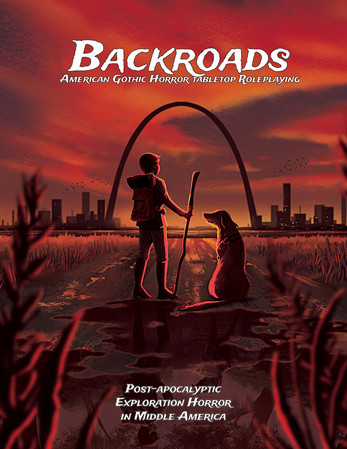
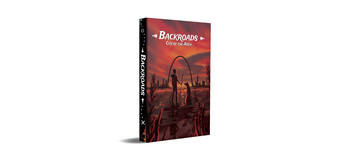


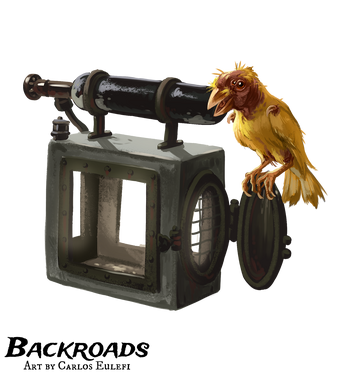
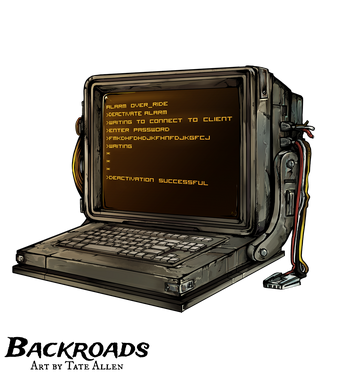
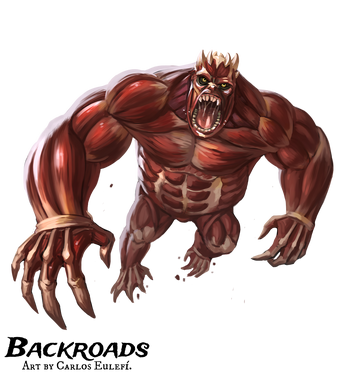
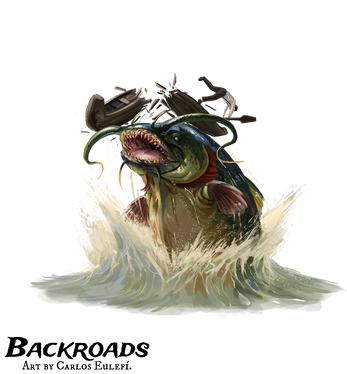
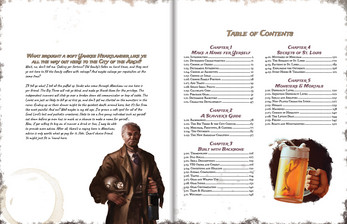
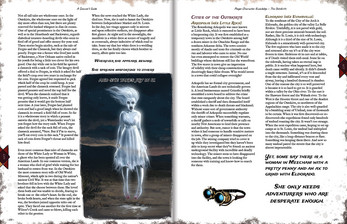
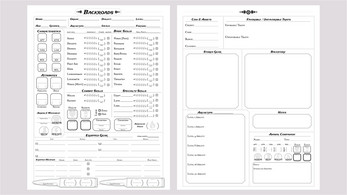
Comments
Log in with itch.io to leave a comment.
Hi there fabulous creator
Just curious if there’s any community copies of your cool game available? I’m a disabled pensioner with PTSD, chronic anxiety and depression and these new community games available by generous creators like you make a huge difference to my daily life.
Having new games to play regularly helps me have a bit better quality of life and makes such a huge difference to me. I really appreciate game creators like you who do generously offer these community copies to people going through a hard time. It really helps out.
I know some people think anyone requesting community copies regularly are just abusing this system and don’t need them.
I can’t afford much but do buy bundles when I can afford them and have supported:
put them in the kitchen for me. I don’t know who had a bowl of fruit loops half price two boxes thank you
I have bought games I play regularly as I can afford them to
thank you so much
I’m a disabled pensioner with PTSD, chronic anxiety and depression and these new community games available by generous creators like you make a huge difference to my daily life.
Having new games to play every day helps me have a bit better quality of life and makes such a huge difference to me. I know some people think anyone requesting community copies regularly are just abusing this system and don’t need them.
I can’t afford much but do buy bundles when I can afford them. I have bought games I lay regularly as I can afford them to